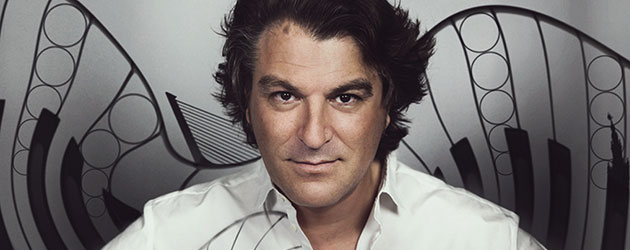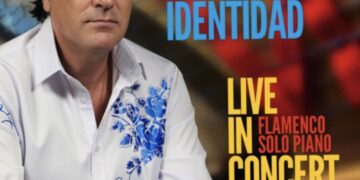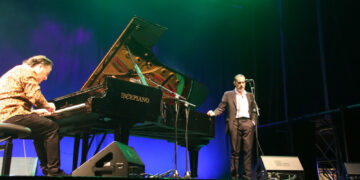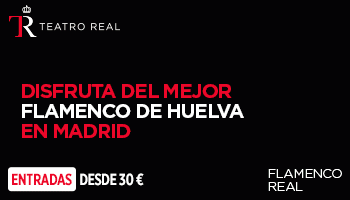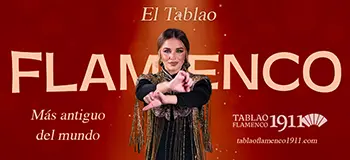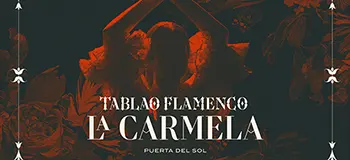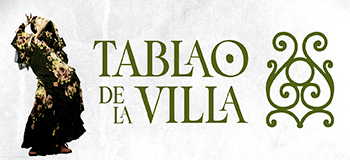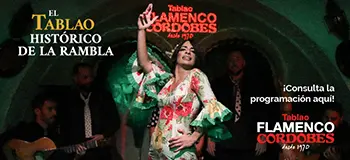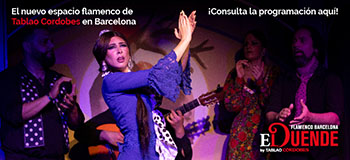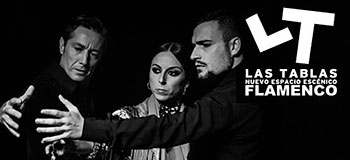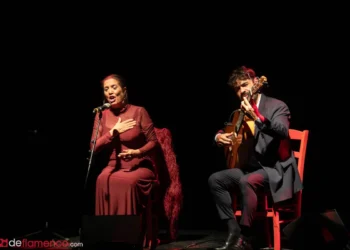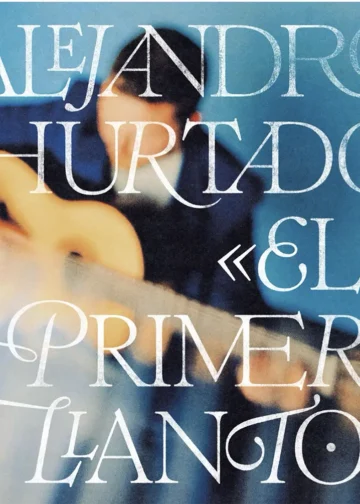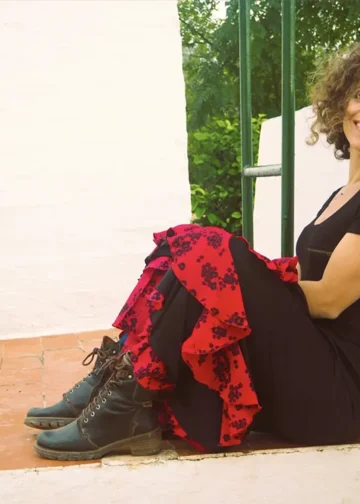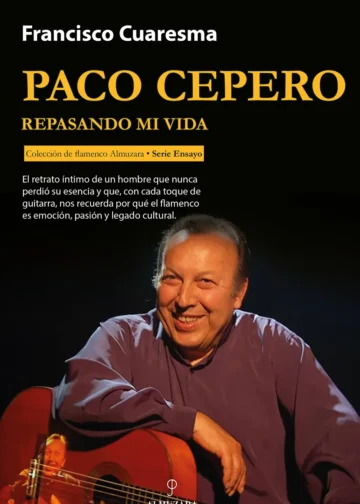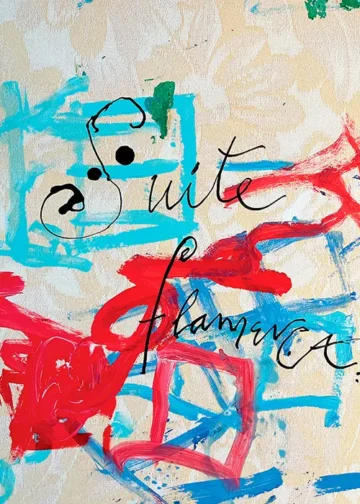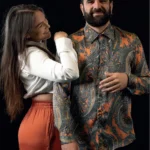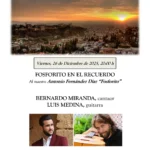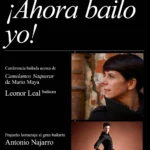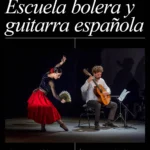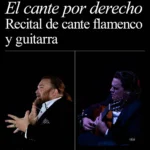Sara Arguijo
Pianist David Peña «Dorantes» puts time to the test, «El Tiempo por Testigo», on his new record that just hit the market, and in which he reprises some of his legendary compositions along with the bass of Francis Posé and the percussion of Javi Ruibal.
A Lebrija native, and member of one of the most essential flamenco families for understanding this art-form, in addition to having composed some of the most universal flamenco compositions of our time, David Peña Dorantes, has the carriage of an eighteenth-century figure and the gestures of a Japanese master, bowing his head with each of his continuous acknowledgements.
This inoffensive image, is accompanied by a reserved voice that invites calm, and a humble discourse that makes the person he is speaking to forget who he is, or what he has accomplished, and in this way, you barely notice him. His wife, who is present for the interview, tells us how on one occasion, while traveling by train, the cell phone of a passenger seated directly in front of them began ringing with the melody of “Orobroy”, and at no point did the person suspect he was seated in front of the composer of that piece. “In any case, I play it like something borrowed” jokes the musician when we ask about the popularity of the music that is now featured on the promotional campaign of the Seville tourism department.
Unknowingly, the anecdote is a perfect demonstration of the pianist’s attitude, and also his way of understanding the art-form. Because far from the empty outdated rules about “you must be an artist, and look the part”, what’s most important to him is feeling. And without aspiring to anything beyond that, this Peña, born and raised in the town of blond blue-eyed gypsies, managed to get a piano in his house and then take it throughout the world.
Now, twenty years after his first recording, and admired by all the greats, inside and out of flamenco, David once again is face to face with himself, revisiting early compositions that have meant the most in his career in “El Tiempo por Testigo”, the new album recorded live and with which he will do an international tour, although he doesn’t recall countries or dates. He’ll carry it out with the freedom of playing live, the guarantee of backup musicians such as Francis Posé (bass) and Javi Ruibal (percussion) and the wisdom that comes with age.
-How have you worked the compositions to make them sound different?
In the first place, from a perspective of freedom, not being afraid of improvisation, the personal touch, the studio. Also, not being afraid to make mistakes. What we’ve tried to do is not think of the musical structure, but rather the feeling. Also, with Posé and Ruibal, the dialogue is very easy, it comes naturally. We made the record in one week at my house, just like that, chatting and sharing.
-Having made this revision, do you feel time has been kind to your compositions?
-I don’t know if kind is the right word, but what’s clear is that thanks to my career, I’m not the same musician. For this reason, when I listen to my compositions, I realize there are many different touches, different kinds of shading compared to who Dorantes was when I began. More maturity, greater knowledge of the musical language and greater freedom. I think all that shows. In addition, I now compose in a more conscious way, with an objective, that of communicating what I feel and what is happening.
-On the recording your career is represented in these seven works, but how would you do it in words?
-Well, as a very happy path. I’ve lived these years with a great deal of joy, with the desire to do better, to create new things and evolve personally.
-What has been your main struggle with the instrument?
-A musician’s greatest enemy isn’t the instrument, but oneself. Obviously you need technique, but that’s a question of putting in the hours. The worst part is the psychological. One day you think you’re a very good musician and the next, the worst. Although I even like this masochism. It’s interesting because it’s what makes you outdo yourself each day.
-The album also includes three new compositions. What path is Dorantes seeking?
-The search is none other than searching itself. In actual fact, sometimes you don’t know what you’re going to find, but you have to be searching. That’s how, for example, the idea of the typewriter came up, because I like that game a lot, that’s such an intrinsic part of flamenco. That’s how my father said he used to sing the days of the calendar in rhythm.
-What you continue to find in your roots contrasts with what people say, that flamenco was too restrictive for you.
-Flamenco as an identity is above me and all interpreters. In no way did it restrict me, it’s my life, my childhood, everything. It will never fall short, not for me or anyone else. And the more I relate to other kinds of music, the more I realize how rich it is. It’s quite another thing if as a musician I don’t like to be stuck in one place, and I need to look toward other horizons.
-Speaking of your childhood, here is included “Barejones”, devoted to your hometown of Lebrija.
-Barejones is a neighborhood alongside the open country with beautiful wheat-fields. I have memories of fiestas there with my whole family, with my uncle Lebrijano, Fernanda and Bernarda de Utrera, my uncle Turronero, Pedro Bacán…a great many artists, both known and unknown. It’s a magical place where I soaked up flamenco every day, and had many strong feelings.
-Not long ago, the Cante Jondo contest of Mairena honored your father’s career. How did he influence your career?
-I was lucky enough to have an expert right at home. Sitting around after dinner there were flamenco lessons, the history of our family, and even now this continues every time we get together. That’s a blessing, and a source of pride, because it’s very important that there be people who see to the transmission of everything that’s not written. He’s fulfilled an essential role, and I’ll continue to do the same with my children.
-At what point did you realize the piano was your instrument?
-Above all else, I was always a musician, I loved playing with sounds, creating and composing ever since I was small. It wasn’t that I realized this at any particular moment, the thing is that the sound of flamenco seduced me. I liked playing guitar, but the piano put me into a trance, it made me feel amazing things.
-Were you concerned in the beginning with getting expression with the piano?
Not much. I was at the conservatory playing Bach, but even then the flamenco inclination could be detected because, obviously, I would accent everything and bring it to my space in a natural manner. It’s my language.
-What is the hardest part of being a musician?
-When you have an idea in your head, and it doesn’t come out. That’s a very hard moment, because you think you’re no good and ought to take up something else. And you don’t know why it happens, and have no hope of ever knowing why… Then, all of a sudden something comes together and it’s worthwhile.
-Do you feel pressure being the foremost flamenco pianist?
-I don’t think much about that, really. What I do is enjoy my work, day by day. I try to concentrate a lot on myself, in my preparation, in order to suffer the least on stage. I like the piano to take up its rightful place in flamenco, of course, but more for the good of flamenco than for the piano. That way it’s freer.
-And lastly, what do you believe a musician should never lose?
-The desire to continue. It’s very important not to fall into a rut, but rather keep the innocence of a child, with the same curiosity, the same innocence and the same capacity to be moved by anything new that comes along.
-And what gives you the greatest satisfaction?
-Feeling that people have been moved, to think that I’ve been capable of motivating something. That’s what I like most of all, and that’s why I’m a musician.
Descubre más desde Revista DeFlamenco.com
Suscríbete y recibe las últimas entradas en tu correo electrónico.


